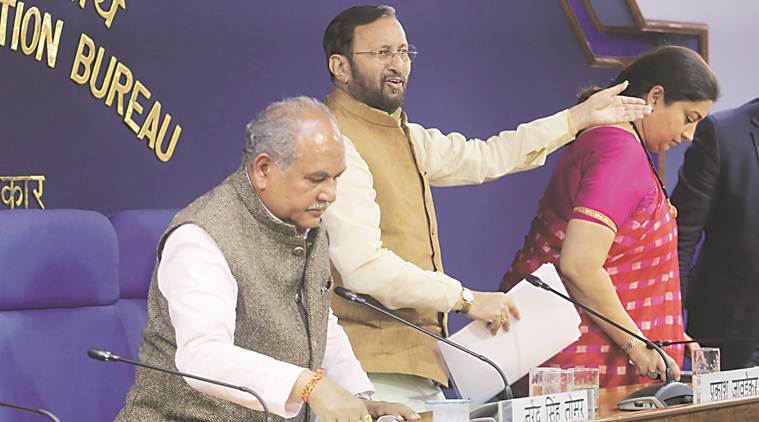 Union ministers Narendra Singh Tomar, Prakash Javadekar and Smriti Irani at a Cabinet briefing Wednesday. )(Express photo by Anil Sharma)
Union ministers Narendra Singh Tomar, Prakash Javadekar and Smriti Irani at a Cabinet briefing Wednesday. )(Express photo by Anil Sharma)
The Cabinet on Wednesday cleared the Assisted Reproductive Technology Regulation Bill, 2020.
The Bill aims to regulate assisted reproductive technology services in the country. A National Board, which will be constituted once the Bill is passed by Parliament, will lay down a code of conduct and set minimum standards of physical infrastructure, laboratory and diagnostic equipment and expert manpower to be employed by clinics and banks.
States and Union Territories shall constitute State Boards and State Authorities within three months of the notification by the Central government. The Bill also provides for National Registry and Registration Authority to maintain a central database and assist the National Board in its functioning. It proposes stringent punishment for sex selection, sale of human embryos or gametes, and agencies/rackets/organisations behind such unlawful practices.
Assisted reproductive technology (ART) has grown by leaps and bounds in the last few years. India is among countries that have seen highest growth in the number of ART centres and ART cycles performed every year. ART, including In-Vitro Fertilization (IVF), has given hope to persons suffering from infertility, but has also brought in a plethora of legal, ethical and social issues.
However, there is no standardisation of protocols yet in the country and reporting is still very inadequate.
The need to regulate ART services is mainly to protect the affected women and children from exploitation.